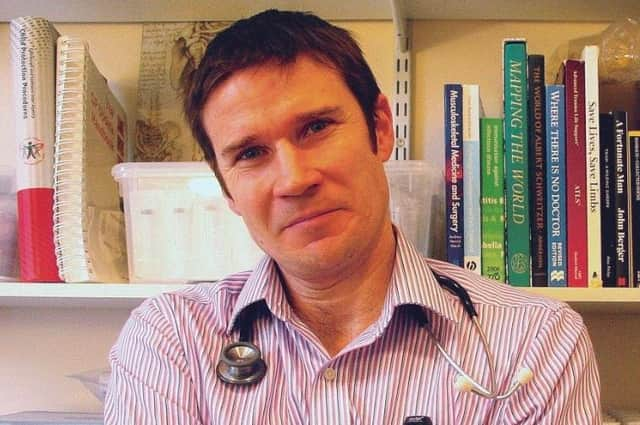Book review: Island Dreams, by Gavin Francis


On his first visit to Unst, northernmost inhabited island of Shetland, Gavin Francis was told that a black-browed albatross, member of “a species accustomed to the skerries of the sub-Antarctic,” had been seen there. On my only visit to Unst it was almost as astonishing to see a peacock a few yards from a Royal Mail post-box. Islands are full of surprises, rich fruit for the imagination.
Gavin Francis is an island-lover, and this beautifully illustrated book is a record of his island-hopping. Its subtitle is “Mapping an Obsession.” There is no coherent narrative. Francis not only flits from island to island, stopping off at peninsulas too, Mount Athos in Greece, for instance; he also moves to and fro in time. So it’s a book that readers may dip into here and there, now going forward, now back. You might call it an anthology of islands, and treat it as one treats any anthology, keeping it perhaps by your bedside, solace for sleepless hours and perhaps rich in material for dreams.
Advertisement
Hide AdThe author is a doctor by profession, and the practice of medicine has always been a way to see the world. It is one of the most portable of trades. No ship on a long voyage is without a doctor, and, if much of his working life has been spent in hospitals and latterly GP surgeries in Scotland, he has also served on survey ships in the Antarctic. His voyages have had him reflecting on Charles Darwin and Alexander Selkirk, who, marooned on the island of Juan-Fernandez, “killed sea-lions with relative ease,” almost in his isolation lost the ability to speak, and whose story inspired Defoe to write Robinson Crusoe. As a boy, Francis delighted in The Swiss Family Robinson, as indeed I did myself. Its German-Swiss author, Johann David Wyss (1743-1818) was inspired by Crusoe’s story (hence, I suppose, the not very Swiss family name Robinson) and also, Francis says, by Jean-Jacques Rousseau’s educational theories. I don’t know how it reads, or would read, today; there was a deal of Christian, probably Lutheran, moralising. But one ought to remain grateful to any book which has given as much pleasure as it gave me and, likewise, it would seem, Francis.
Islands may be holy places – Iona and Lindesfarne, for example – but they have also been found convenient as prisons – Alcatraz, Devil’s Island, Robben Island – and penal settlements. They have been used to isolate the sick and infectious, a timely thought today. Francis remarks that the Isle of May, now a bird sanctuary, was used by Edinburgh’s authorities as a suitable place to decant lepers and carriers of the pox. Given our present circumstances, this is a worrying thought. “Isolation,” forced on so many this year, has its root in “Isola,” an island.
How big does an island have to be before we stop thinking of it as an island? Brexit has had us speaking of the island of Ireland, but do the Irish think of themselves as island-dwellers? Do the Australians? Francis calls Greenland “the world’s largest island.” Now “its snows are melting, revealing immense mineral reserves – the world’s largest Treasure Island” which is why President Trump tried to buy it for the USA.
One of the many charms of this book is the way Frances produces odd pieces of recondite information. Mercator, the great Dutch cartographer, asserted that a Franciscan friar from Oxford “who toured along the western shore of Greenland in the 14th century, “was descended in the fifth generation from those whom King Arthur had sent to inhabit these lands.”
Islands may seem out of time. Francis quotes Edwin Muir, born in 1887 on the Orkney island of Wyre: “I was born before the Industrial Revolution and am now almost two hundred years old… in 1751 I set out from Orkney for Glasgow. When I arrived I found it was not 1751, but 1901.”
There are so many riches and delights in this book that there is scarcely a page that does not invite quotation, so I can best advise that you buy it and treat it as an anthology or a box of delights. It will set you dreaming and have you thinking.
Island Dreams, by Gavin Francis, Canongate, 246pp, £20
A message from the Editor:
Advertisement
Hide AdThank you for reading this story on our website. While I have your attention, I also have an important request to make of you.
The dramatic events of 2020 are having a major impact on many of our advertisers - and consequently the revenue we receive. We are now more reliant than ever on you taking out a digital subscription to support our journalism.
To subscribe to scotsman.com and enjoy unlimited access to Scottish news and information online and on our app, visit https://www.scotsman.com/subscriptions
Joy Yates, Editorial Director